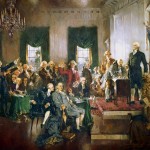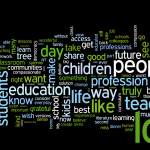As co-founder of a small charter high school, I decided to interview Mike Klonsky, Chicago-based leader in the modern small-schools movement. Mike and I have a lot in common: we agree that small schools offer a more humane and functional alternative to big schools. We also share the belief, as evidenced by research and our own experiences, that small schools have lower teacher turnover, experience less violence, and allow for greater teacher autonomy.
What we don't necessarily see eye-to-eye on is the notion of charter schools. Here's my attempt at initiating some civil discourse on a topic that hasn't inspired much civility lately.
Ladies and gentlemen, Michael Klonsky:
EVE: On your blog site you have 209 posts that expose issues and flaws in various charter schools. What are your main concerns about the charter school movement?
MIKE: In our book, "Small Schools: Public School Reform Meets the Ownership Society," Susan Klonsky and I offer our assessment of the current charter school movement from it's origins. Our Small Schools Workshop helped start many of the first charter schools, which were teacher-led. Those schools were created as small alternatives to the traditional schools. They were seen as a critical force with the public school system and a place where teachers could have more autonomy and control over the learning environment.
We couldn't have imagined back then how the idea of charters could be taken over by what we called, ownership-society forces, power philanthropy, corporate management companies, etc… and used to attack public education, to violate Civil Rights law, and take away teachers' collective-bargaining rights. I couldn't have foreseen the possibility of my own grandson, for example, being excluded from some of the very charter schools we helped create, because of his physical disabilities.
In short, I am not opposed to charter schools and continue to work and support several of them and especially the teachers who work within them. I also support their right to unionize and struggle for more humane working conditions for charter teachers. I also support small, innovative alternatives of all kinds for kids and parents, whether charter or public (questionable whether most current privately-operated charters are public in name only). But I will continue to be critical of those who use charters to reproduce the inequities in the educational system.
EVE: As a leader in the modern small schools movement, you have argued that small schools have reduced dropout rates, less violence, and higher student achievement. Can you tell us about some successful small high schools that are neither private, charter, nor in homogenous upper-class neighborhoods?
MIKE: That's a really loaded question without first discussing what we mean by "success." So many of our promising small high schools have been crushed or undermined by the system's focus on standardization and testing. Do you mean schools with high scores on standardized tests? No I can't. Do you mean good high schools like the MET in Providence R.I. (not a charter), where kids learn through internships and are well prepared to become active citizens in a democratic society? Yes I can. I'm thinking here of schools like Community Links, here in Chicago. Or how about Austin Polytech, a small school we helped start a few years ago on the city's west side. President Obama has called it a model (I hate that word) for the nation. Then there's Urban Academy in N.Y.
EVE: Most districts have extremely rigid systems that would make it almost impossible to simply open a new small district school. Instead of accepting the realities of large schools, especially in urban settings, why not just open more charters?
MIKE: Why the emphasis on opening new schools, rather than working to change and improve the ones we have–the ones where most urban students attend? Is there any evidence that these new charters are any better than the schools they are replacing? Are they doing anything radically different? Why the emphasis on MORE instead of BETTER? Is it because it's easier? I think it should be more difficult to open a new school. There should be a proven need in the community with much tighter authorization policies. Now, in some cities, they are being opened like Starbucks, one on every block, by companies who are hiring inexperienced and uncertified teachers to work with the neediest kids.
EVE: You are an avid twitterer and have 816 followers. Considering that many charters are also small, have you ever considered that, as a leader of the small schools movement, your anti-charter posts might actually be harming the very movement you espouse?
MIKE: 822 followers, and I don't agree that my posts are "anti-charter." What has actually harmed (killed?) the small-schools movement has been the anti-public school forces, especially during the past decade under the Bush administration and now under Race To The Top. They have captured the language of the small schools movement using our words like "choice" and "autonomy" to erode public space, evade public oversight, and dis-empower teachers. Besides, how could my little tweets to only 822 followers be so dangerous? Do you think I should stop Tweeting? There are plenty of other bloggers and tweeters and even big-time Hollywood film makers who are touting privately-run charters as the nation's salvation. What are my little tweets compared to the power of Waiting for Superman or the Gates Foundation?
EVE: Do you see any hope of the charter movement and the small schools movement ever becoming friends?
MIKE: Yes, but critical friends.
Thanks, Mike! I look forward to our continued critical friendship.








